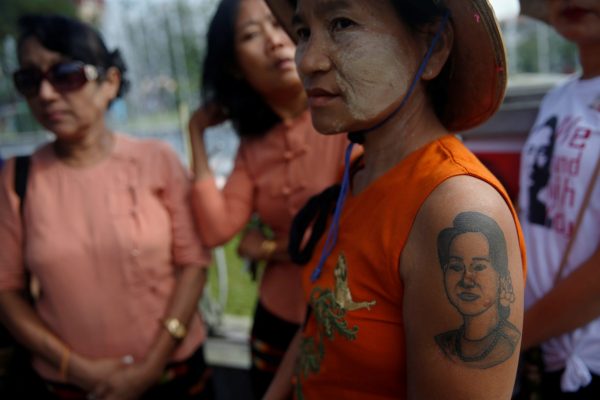Myanmar is known as a failed state whose governments have lacked the robust histories of skill, leadership and wisdom needed to build a state. Since Myanmar was given her independence, Myanmar’s biggest problem has been the lingering interference of the military, which underpins a troika of failures: institutional, state and market.
From 2011, Myanmar has been injected with billions of US dollars aimed at improving its institutional capacity and fostering a market-based economy. Remarkably, global political leaders sought primarily to assist the economic regulatory transformations of Myanmar, rather than political, legal and judicial reforms. The underdevelopment of political institutions has resulted in a stagnate state, unable to break away from the Tatmadaw (the Armed Forces of Myanmar) and wandering without a clear direction in the face of ethnic conflict.
The biggest problem is the 2008 constitution, which raised the commander-in-chief of the Tatmadaw above political checks. The majority of the constitution is framed by tyrannical ideas and principles rather than human liberty and social justice. Under the charter, the State Counsellor has no real executive or judicial power to supervise the home, border affairs and defence ministries. One subsequent outcome is that the managing of conflict and corruption is situated outside the policy domain of Suu Kyi’s government due to Chapters I, V and XII.
Even if the State Counsellor had decisive power to tackle ethnic conflict, the leadership of all modern states requires a leader supported by a robust team of advisors, technocrats and bureaucrats. Myanmar has a leader but not a professional team. Without a team, the leader is faced with the challenge of selecting optimum policies from among policy pools single-handedly.
Currently, information in Myanmar is pumped up through four regulatory agencies including the Ministry of Information, the Tatmadaw’s Information Committee, the State Counsellor Office Information Committee and the Information Committee. But due to the lack of meritocracy and accountability in the country, the information industry is managed by ex-military personnel who are trained to negate the enemy, rather than manage information professionally.
Policy matters for tackling the violence and terror affecting Myanmar’s prosperity and growth. Violence and conflict in Myanmar has always been managed by a strategic policy called the ‘four cuts’: cutting food, funds, information, and recruits to the fighters. Some outcomes of this strategy have included the displacement of an estimated 200,000 Karen in the 1980–90s and an estimated 300,000 Shan in the 1990s. With some 100,000 Kachin driven out in the past decade, now the world is witnessing the displacement of over 303,000 Rohingya.
But terror cannot be managed by violence. The ‘four cuts’ have always resulted in negative externalities for the economy, polity and society. Policies that uphold inclusiveness and diversity are smarter solutions for long-term peace in Myanmar.
Myanmar needs diverse and impartial intellectual think-tanks for crafting policy and strategy, and for transforming traditional ideas into constitutional concepts that integrate with the modern world. Myanmar’s leaders still habitually seek suggestions and advice from astrologers and fortune-tellers rather than policy technocrats. But designing and formulating policy to tackle terrorism, corruption and citizenship needs robust research based on unbiased information and data, not sentimental left and right advocacy in Myanmar.
Myanmar is attempting to transition from being a failed state to a young democracy, but it cannot stand up alone. Aung San Suu Kyi’s administration needs to amend countless regulatory institutions that have a part in designing public policy. The decision makers of the world should invest in Myanmar’s institutional building and in professionalising the Tatmadaw, rather than singling out only the State Counsellor.
Naing Ko Ko is a PhD Candidate at the Regulatory Institutions Network, College of Asia and the Pacific, The Australian National University.

